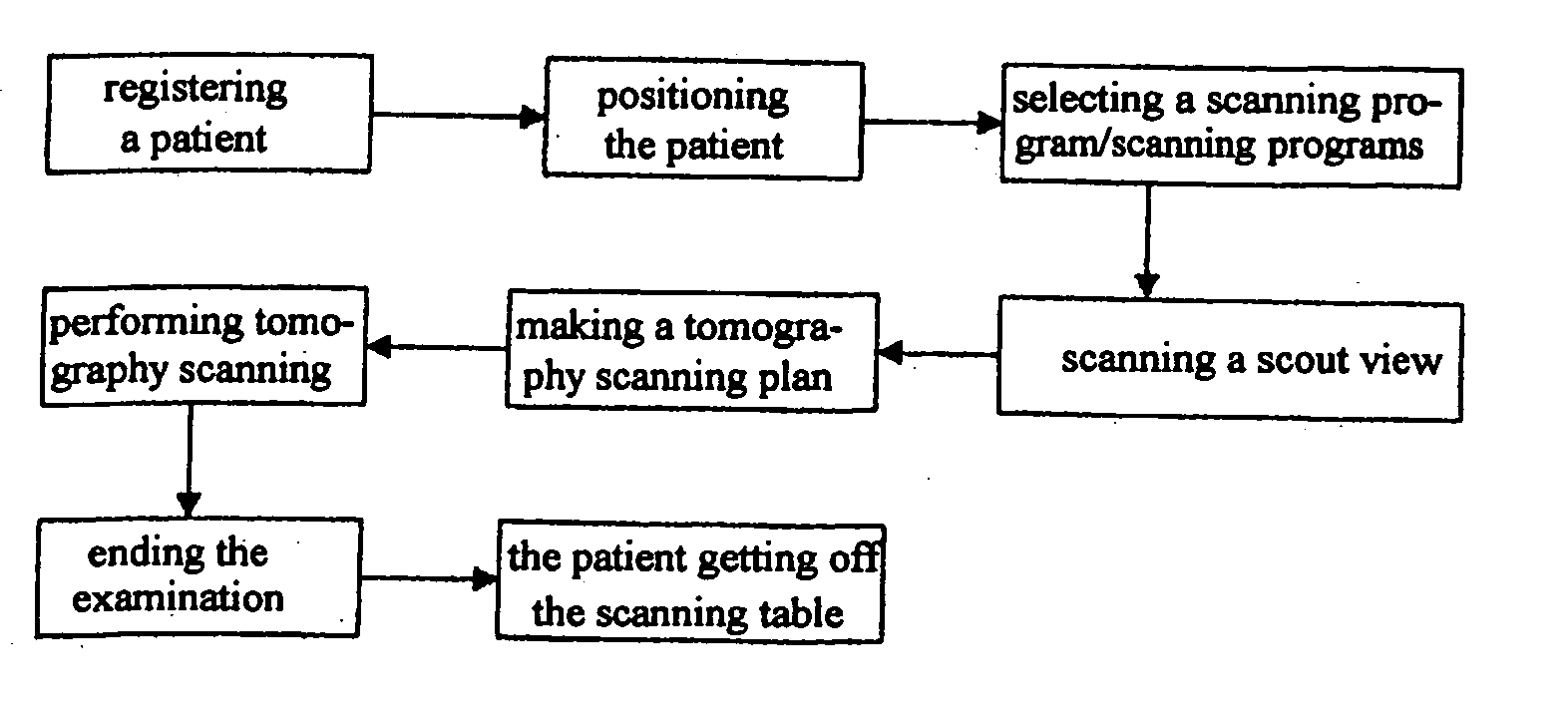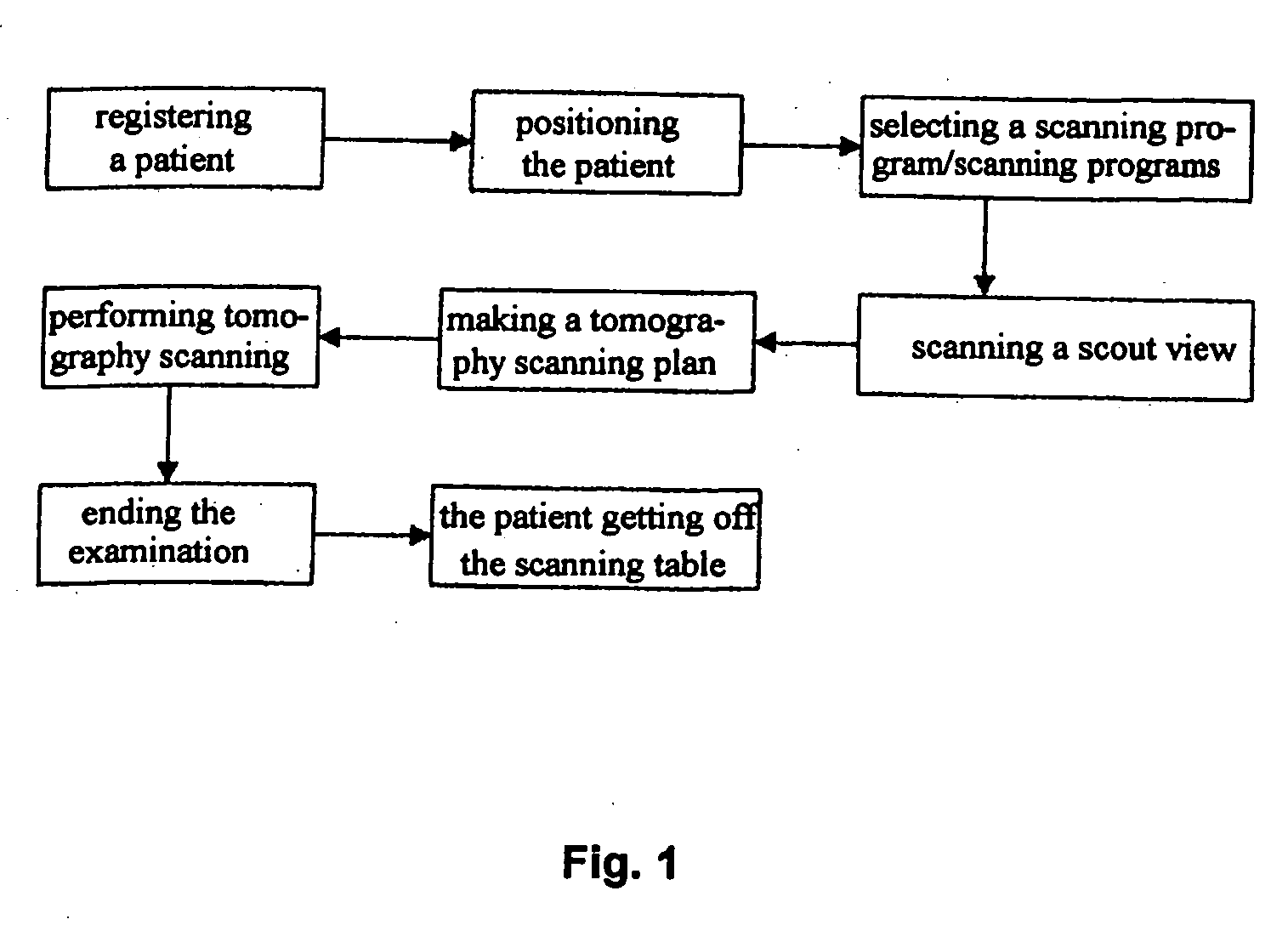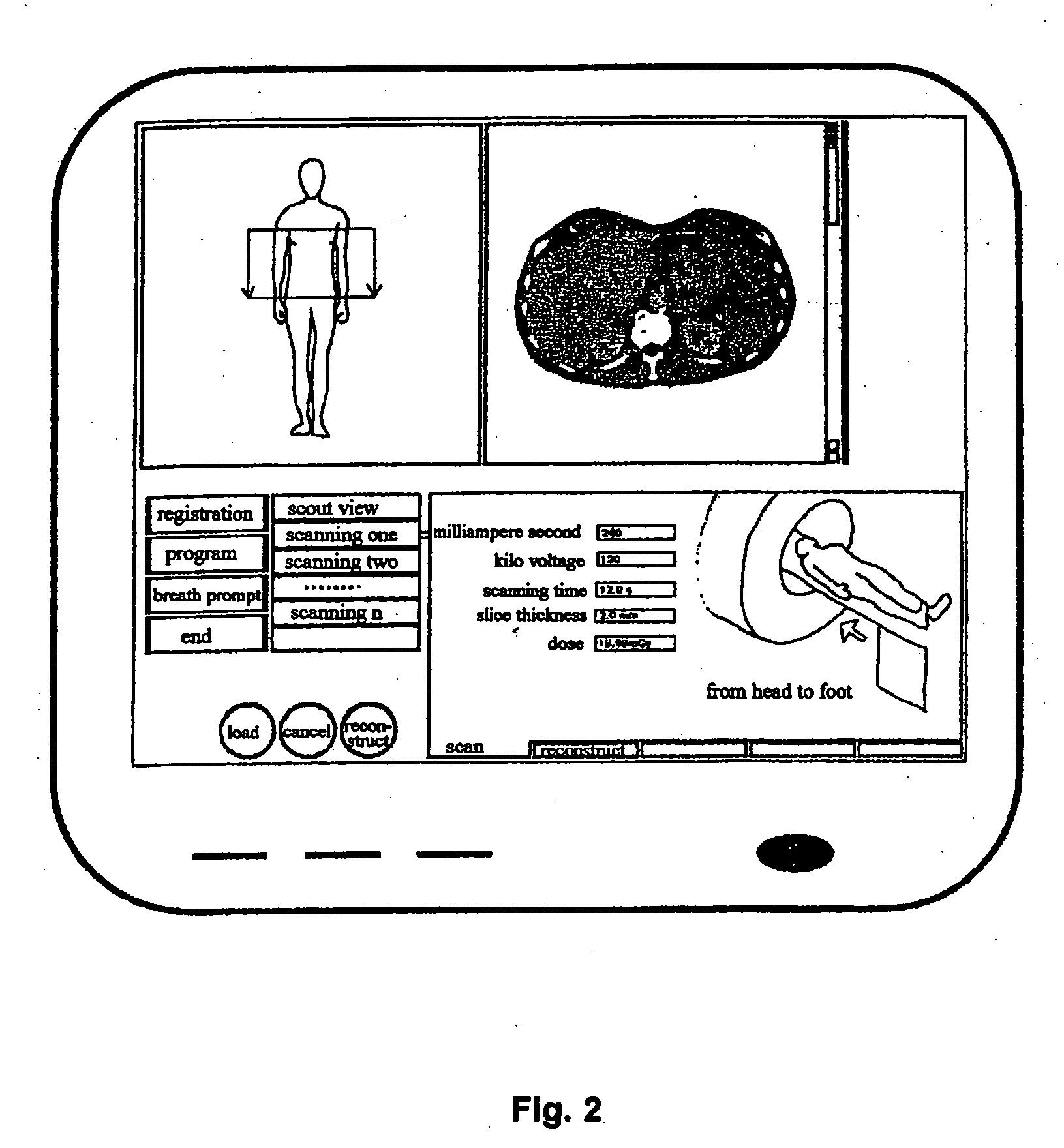Operating method implemented through a user interface for a computed tomography examination
a computed tomography and user interface technology, applied in tomography, applications, instruments, etc., can solve the problems of difficult to understand the patient, difficult to operate, and difficult to operate, so as to improve the operation efficiency of the operator, shorten the time spent in examining, and save operational time
- Summary
- Abstract
- Description
- Claims
- Application Information
AI Technical Summary
Benefits of technology
Problems solved by technology
Method used
Image
Examples
Embodiment Construction
[0039] In the following, the present invention will be described in detail in combination with the accompanying figures
[0040] At first, the scout view area and the tomographic image area on the computer screen are shown blank, and there is only a list of options in the workflow list on the computer screen, no menu being displayed. The “patient registration” option is displayed in the workflow list, and at this moment the “scanning program selection” option displayed in the workflow list on the computer screen is not optional (gray). In accordance with information in the examination list submitted by the patient, the operator inputs patient parameters into the parameter setting area, of which some must be input, such as patient's name, patient ID, sex and birth date.
[0041] After the operator inputs said parameters, the “scanning program selection” option turns to an optional state, as shown in FIG. 4. The operator determines a patient posture, i.e., a scanning program, from figures...
PUM
| Property | Measurement | Unit |
|---|---|---|
| computed tomography | aaaaa | aaaaa |
| area | aaaaa | aaaaa |
| tomographic image area | aaaaa | aaaaa |
Abstract
Description
Claims
Application Information
 Login to View More
Login to View More - R&D
- Intellectual Property
- Life Sciences
- Materials
- Tech Scout
- Unparalleled Data Quality
- Higher Quality Content
- 60% Fewer Hallucinations
Browse by: Latest US Patents, China's latest patents, Technical Efficacy Thesaurus, Application Domain, Technology Topic, Popular Technical Reports.
© 2025 PatSnap. All rights reserved.Legal|Privacy policy|Modern Slavery Act Transparency Statement|Sitemap|About US| Contact US: help@patsnap.com



